The Truth About the Pay Gap
It's 2016—and women still only make about three-quarters of what men do. Here's what you *haven't* been hearing about the wage disparity in this country, and how that info might actually, finally make a difference.


Why Now Is the Time to Show Us the Money
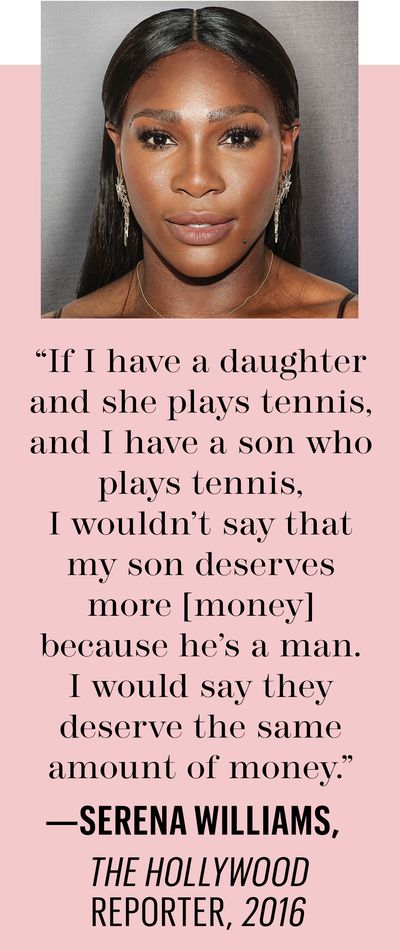
After decades of shouting our demands for equal pay into the wind while the gender gap has remained unchanged, it seems— finally!—our voices are being heard. In January, the Obama administration proposed a rule to require companies with 100-plus employees to report pay by race, gender, and ethnicity in 2017, and most recently, it unveiled seven "Hack the Pay Gap" apps to help women address the disparity. In June, 28 companies including Amazon, L'Oréal USA, and Stella McCartney pledged to conduct an annual gender-pay analysis aimed at eliminating discrepancies.
The issue has been a hot topic on the campaign trail, too: Hillary Clinton has vowed to close the gap, calling on Congress to pass legislation and on CEOs to investigate pay at their companies, while a field organizer for Donald Trump filed a complaint against the campaign, alleging she was paid less than men with the same job title. High-profile women— from Hollywood actresses like Jennifer Lawrence and Charlize Theron to members of the U.S. women's national soccer team—are fighting for wages equal to those of their male counterparts and bring- ing more visibility to the fight for equitable paychecks nationwide. Now, as the Census Bureau gets ready to unveil the latest pay-gap figures, we take an in-depth look at the wage divide. We hope it inspires you to make the case for fair pay in your own workplace, because, after all, money is power.
Wage Gap 101: Everything You Need to Know
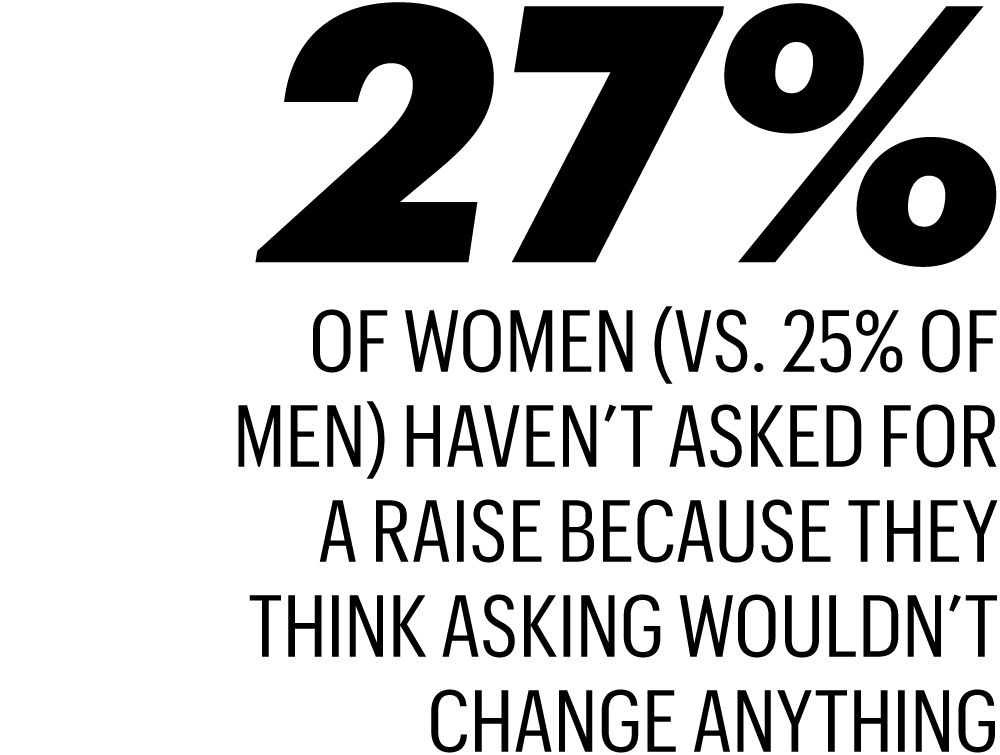
What is the wage gap? It's the average disparity between what men and women earn. The Census Bureau's current estimate is 79 percent, meaning women make 79 cents for every dollar a man earns. Here's a tip: Don't say, "Women are paid 79 cents for doing the same work." The 79-cent figure compares all male and female workers regardless of occupation.
How do they get the number? The Census compares the median earnings for men and women who work full-time year-round.
Why do organizations report different figures? The U.S. Bureau of Labor Statistics (BLS) crunches its own wage-gap figure based on weekly earnings. The most recent quarterly report showed that women earned 82 cents for every dollar earned by men. Other organizations slice and dice the Census or BLS data to break down the gap by age, race, industry, location, etc. For example, a 2013 report by the Pew Research Center found that women ages 25 to 34 earned 93 cents for every dollar earned by men.
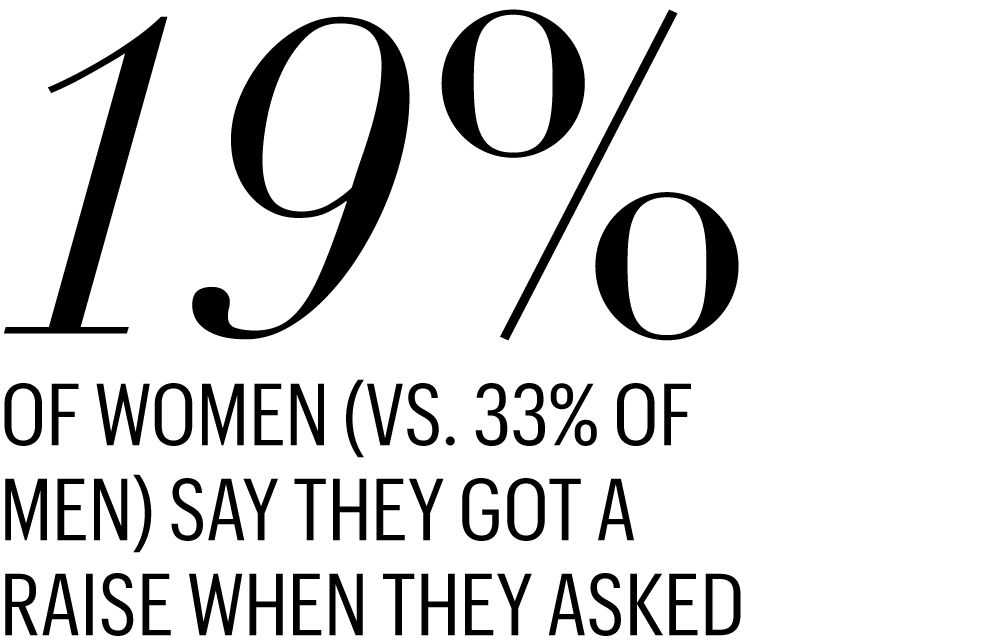
Which should I believe? The Census' figure is the most commonly used—even the president cites it regularly.
Why do some consider the number B.S.? Critics point out that the number doesn't take into account variables that could skew results: Women have less work experience, are more likely to work in lower-paying fields, and are more likely to work part-time or leave the workforce for periods to raise children. The number is still used precisely because it reflects the obstacles and discrimination that lower women's wages.
Get exclusive access to fashion and beauty trends, hot-off-the-press celebrity news, and more.
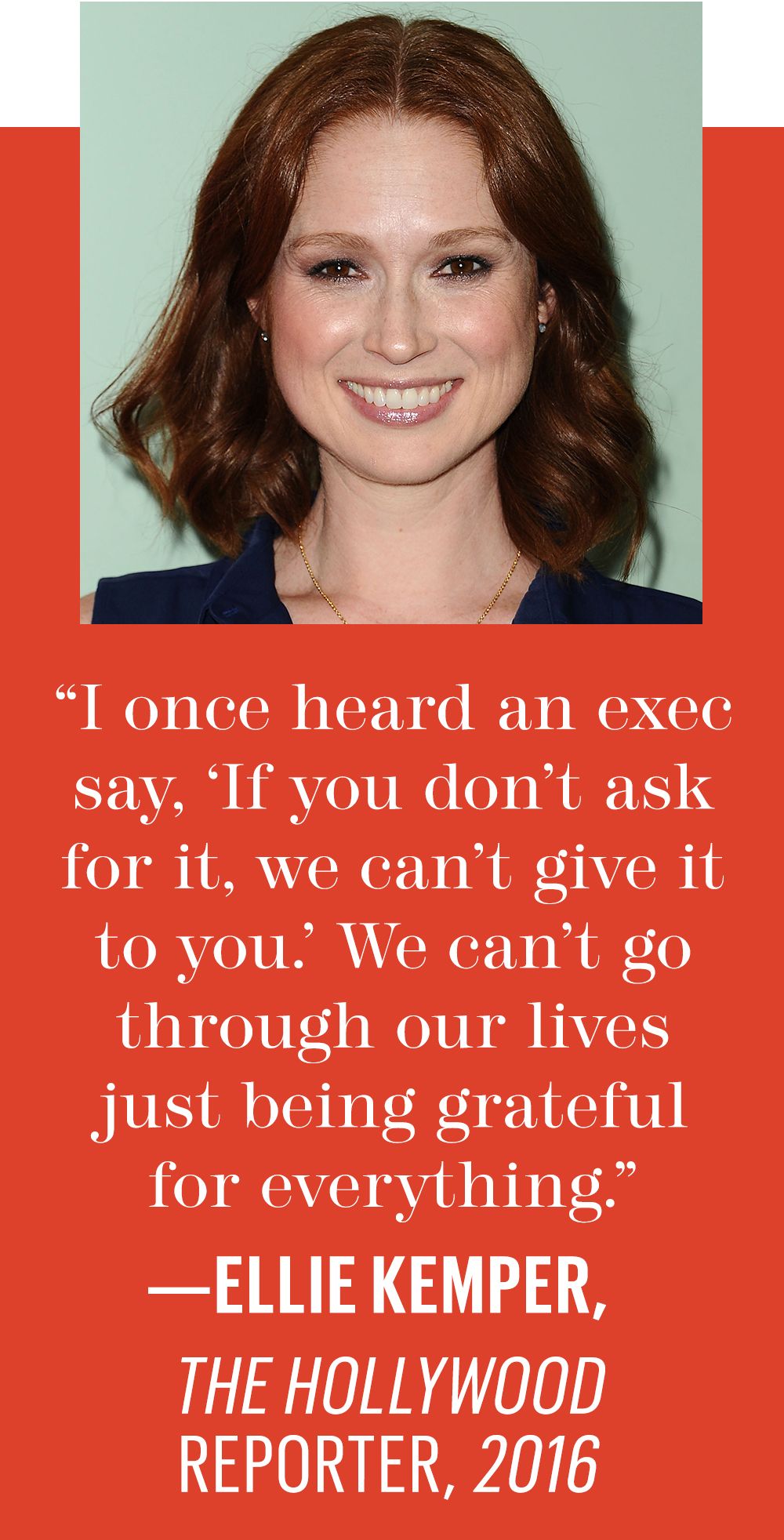
How do we compare to the rest of the world? The U.S. is 12th of 34 countries tracked by the Organization for Economic Cooperation and Development. New Zealand has the smallest gap, while South Korea has the largest.
Don't women out-earn men in certain jobs? Yes, but very few. Of the 342 occupations the Census tracks, women earn more than men in nine jobs.
What is equal pay day? The day symbolizes how far into the year women must work to earn what men earned in the previous year. The next Equal Pay Day is April 4, 2017. (This year, Equal Pay Day and National Grilled Cheese Day coincided, leaving women to contemplate how many more sandwiches they'd be able to afford if they were paid the same as men.)
The United States of Inequality
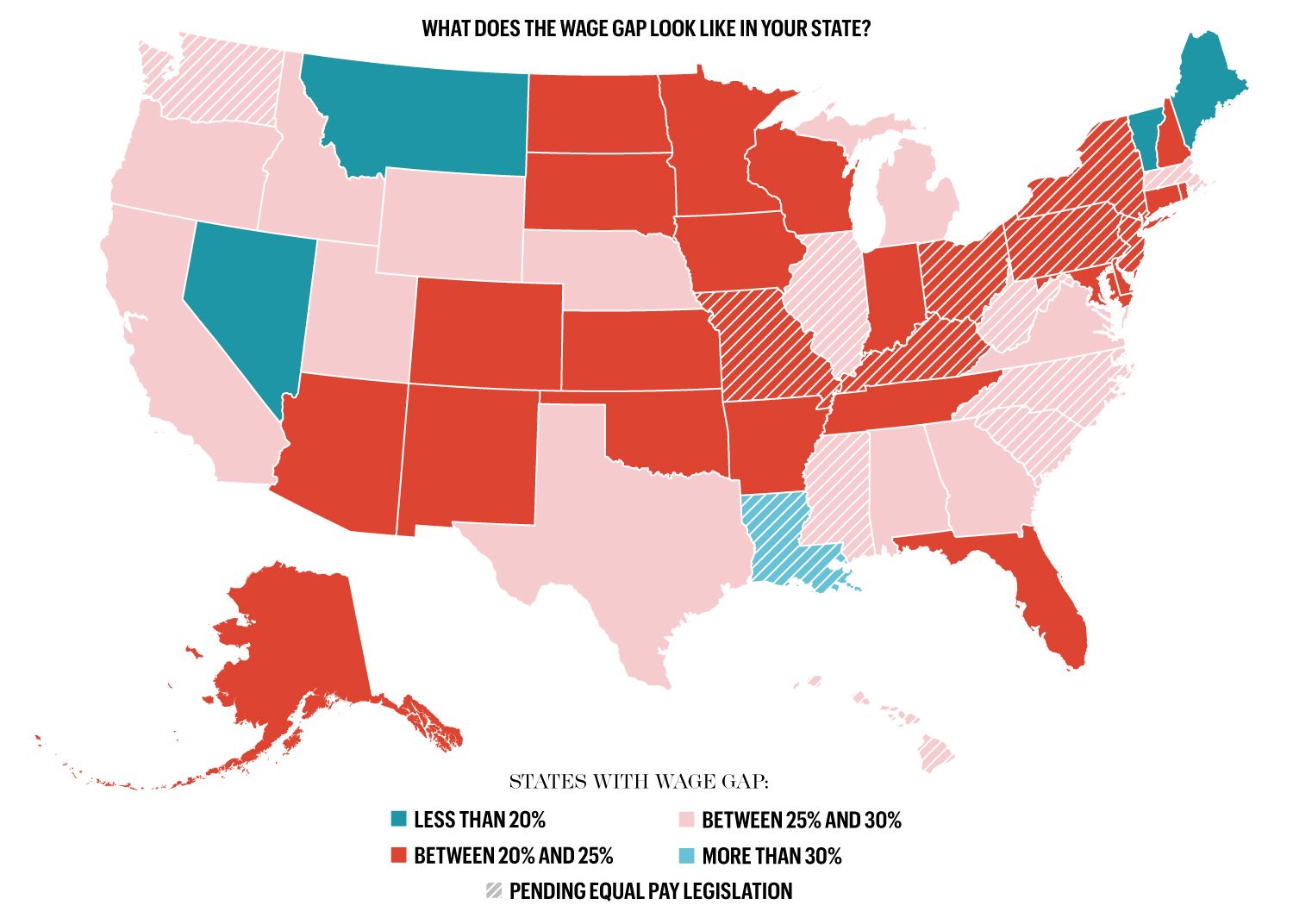
The Gender and Race Breakdown
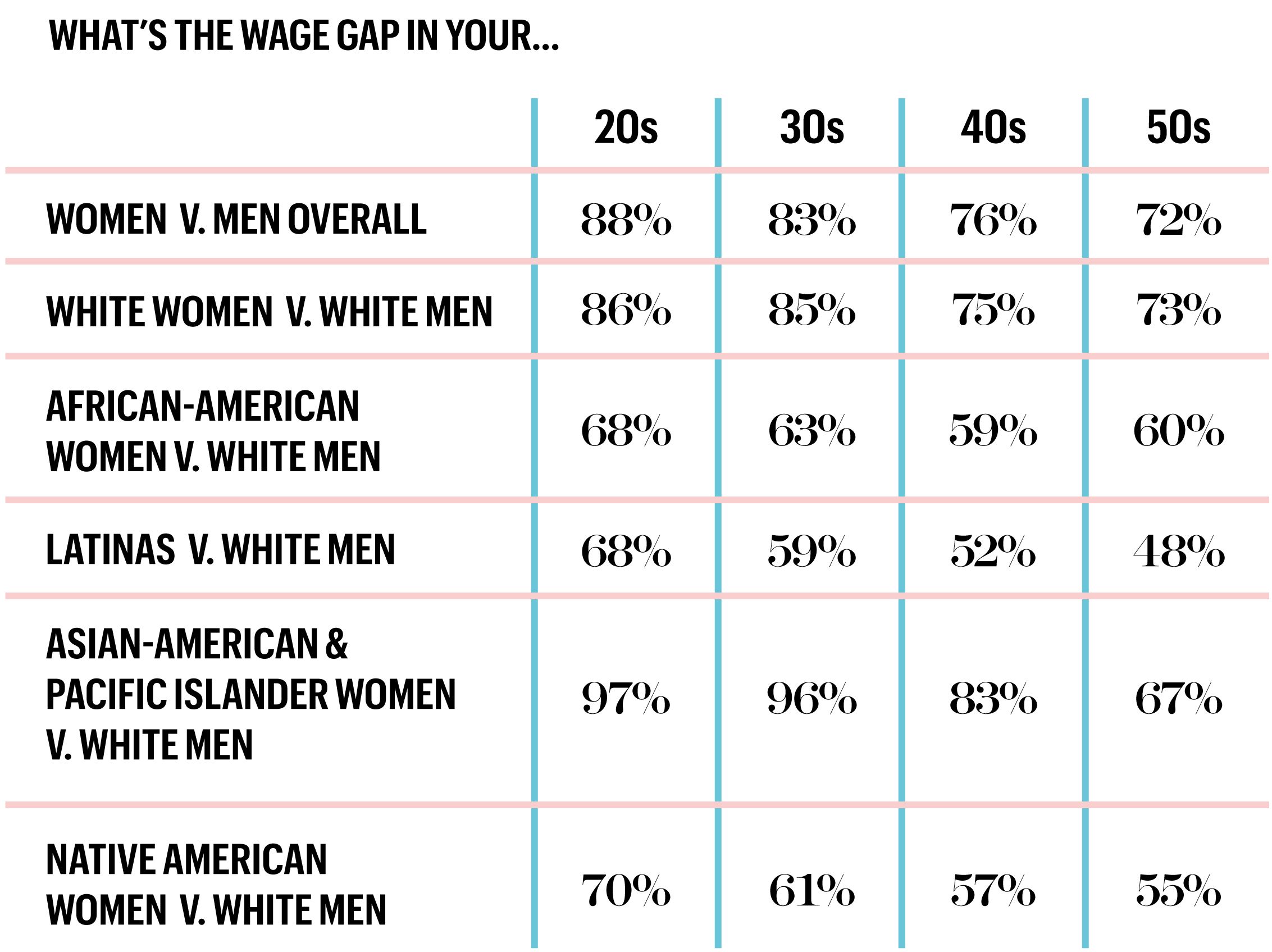
Source: National Women's Law Center
Close the Gap Already: Six Ways We Can Get There
Here, a look at the best tactics and solutions to close the wage gap—what they are, why they could work, and why they may not.
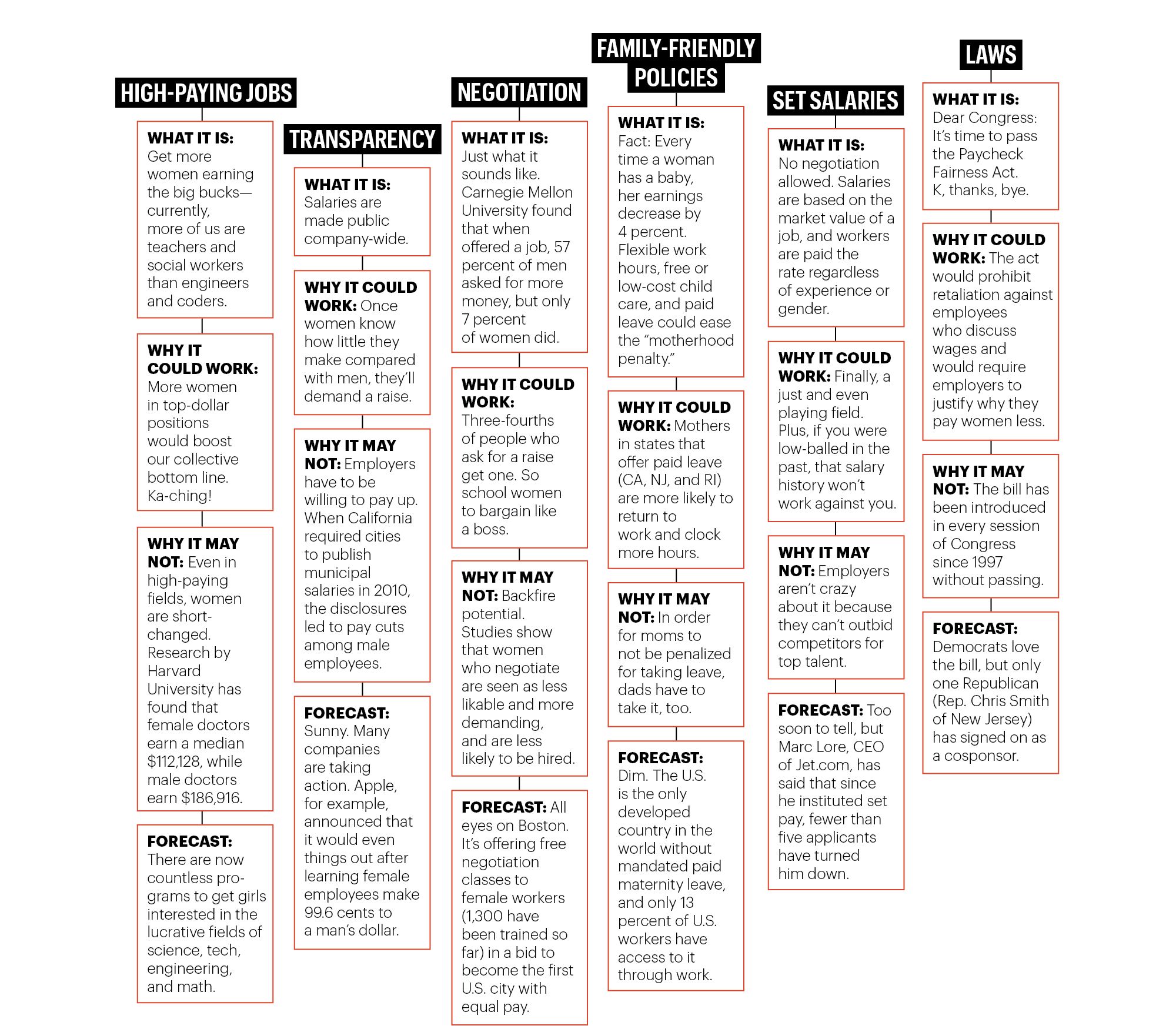
How to Ace Your Next Salary Negotiation
Back in 2009, when New York Times columnist Jessica Bennett was an associate editor at Newsweek, a male colleague at the same level told her he was making over $10,000 more than her. He suggested she ask for a raise, and though she says she was a "nervous wreck," she did. She wound up getting not only a raise (and earning more than that male coworker!), but a promotion, too. Now, she wants to other women to benefit from what she's learned. Here, she shares some wisdom from her new book, Feminist Fight Club: An Office Survival Manual, which includes a chapter on negotiation appropriately titled, "F You, Pay Me."
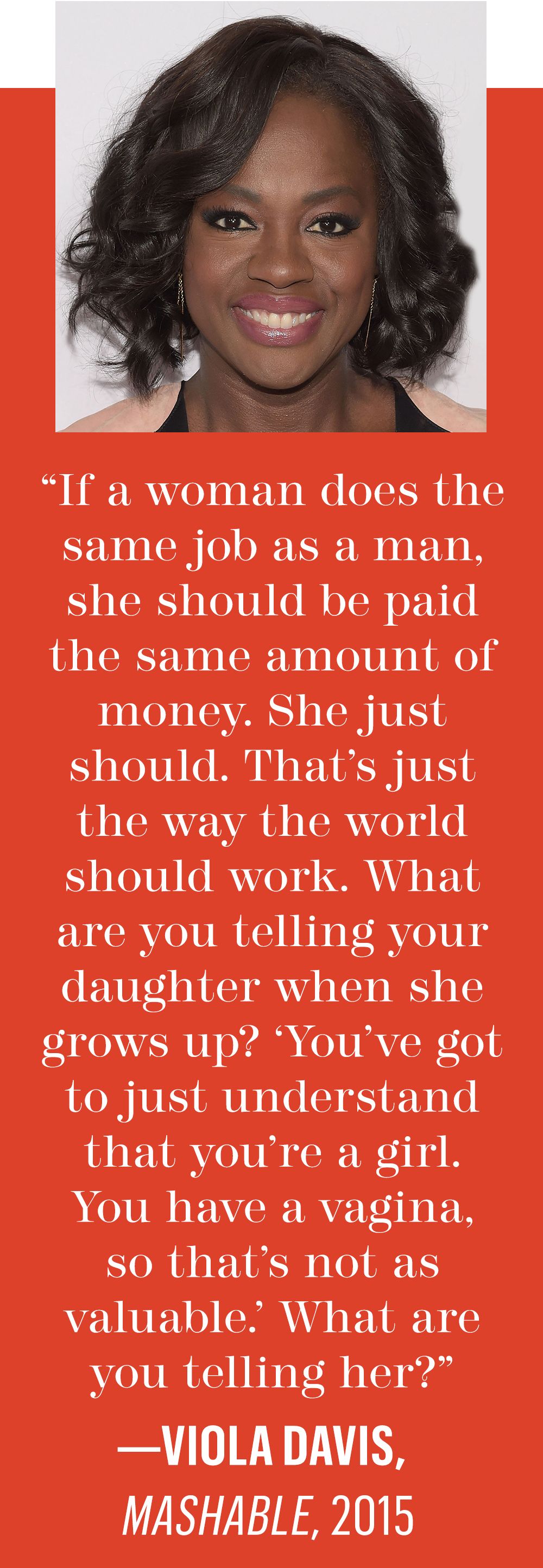
Marie Claire: When you asked for a raise, did you tell your boss you knew you made less than your male colleague?
Jessica Bennett: I said something very vague that hinted at it, like, "I would like to be made commensurate with my peers."
MC: How did the rest of the conversation go?
JB: Probably very poorly. I remember stumbling over my words and turning bright red. I also brought a list of accomplishments and then forgot to say all of them. So, I was a hot mess. But I immediately followed up with a thank you over email and listed all of the things I was too flustered to say. I included the number of stories I'd written for the magazine and the web, the traffic numbers, the social media impact; I even totaled the television hits I had done for each story and calculated the financial reach. Anything that involved a number that I could get my hands on, even if it was a stretch or an estimate, I put it on the list because I wanted to have concrete figures to fall back on.
MC: You cite research that shows women are lied to more than men during negotiations. Why is that, and how should women respond?
JB: Perhaps women are lied to more often because managers think they're not going to push back. If you're told, "We don't have the budget right now" and have no access to the budget to prove otherwise, there's not much you can do, but there's no reason why you can't ask if you can reassess in six months. Then, spend those six months chronicling every good thing you do so you return with a stack of data that proves you need that raise. That's another tip: keep lists. I keep lists of my accomplishments all the time—you never know when it will be useful and you forget if you don't write them down. You can also look back on it to boost your confidence when you think you suck, which happens to me on a daily basis.
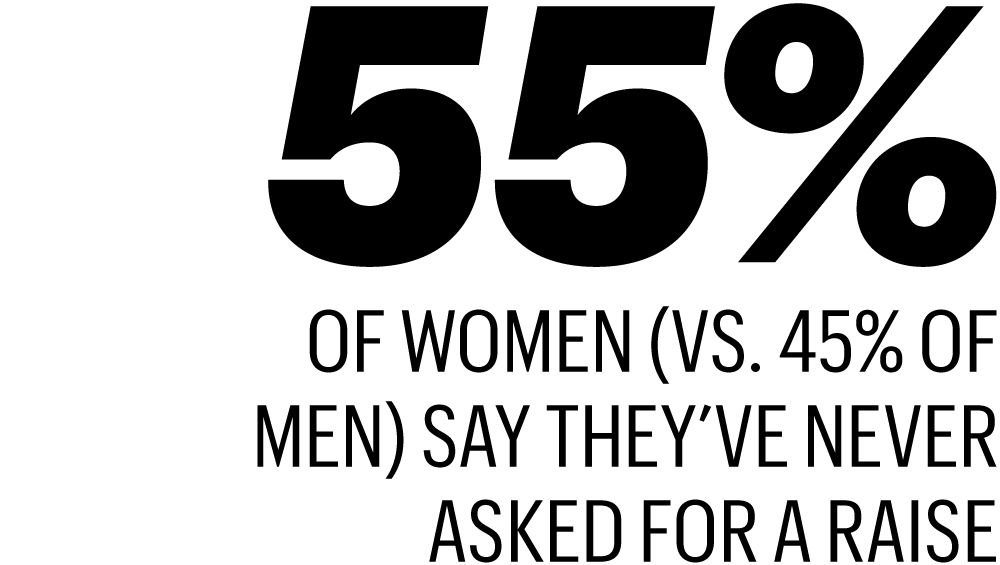
MC: Women face a Catch 22: If we don't ask for a raise, we'll never get one; but studies show when we ask, we're perceived as aggressive. WTF are we supposed to do?
JB: When women negotiate they are often viewed as pushy, but if you think about the way women are viewed at large: we are nurturing, helpful, motherly. Those are all stereotypes, of course, but if you play into them you don't face the same penalties. I struggle with this because I hate the fact that because I am a woman, I am supposed to smile when I go into a negotiation. But it's been shown to work. I shouldn't have to smile, but if doing so means that I am going to get the money and rise in power, then I see it as a necessary evil. Once we're in power, we can have resting b*tch face all day.
MC: So what sorts of things should women say when negotiating?
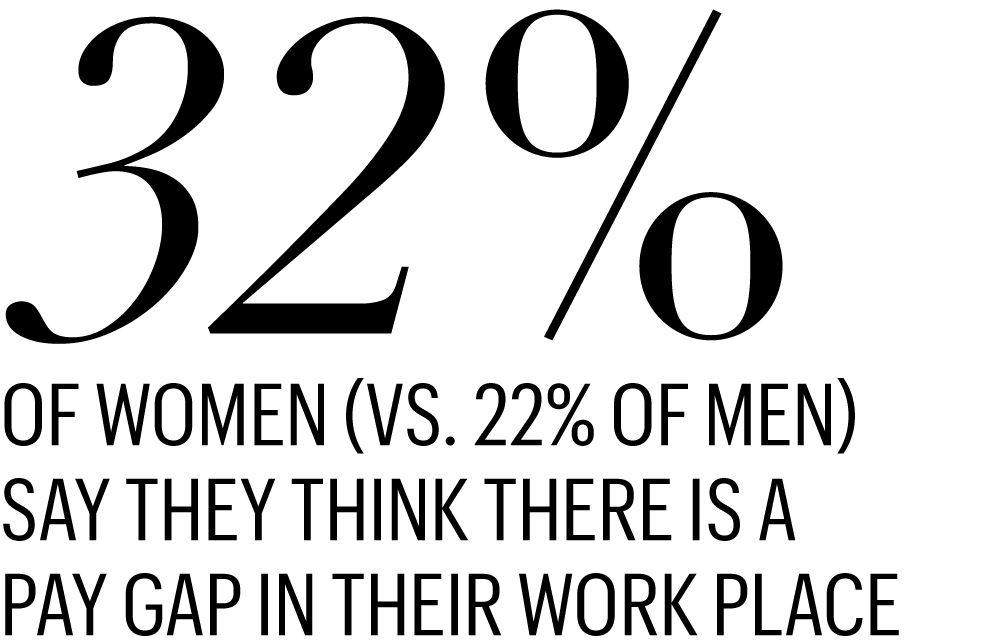
JB: Relate your ask to the group at large by using "we" instead of "I." So I might say, "We grew our traffic by X percent this quarter and it was awesome; I brought in X percent of that." It also helps when women make it about collaboration: This is not a battle—you want to work together with the other person to get to a place you are both happy with—so remind them you're trying to come to a mutually beneficial agreement. Another one in the screwed up, we-shouldn't-have-to-do-it-but-it-works category is, couch your ask. This works for junior employees who can say something like, "My manager suggested I talk to you." Another one I like that works for people in sales is, "I know you are expecting me to negotiate since my job here is to negotiate with clients." It's sort of a wink, wink, you want me to be good at this. Also, I have a friend who said, "Research shows you're going to like me less after I negotiate so I want to get that out of the way before we begin." She got the amount of money she asked for—maybe they were so worried about their own biases that they agreed to whatever she said.
MC: How much should you ask for?
JB: One analysis found that every dollar in the opening offer translates to about 50 cents more in the final agreement. So put the first offer on the table and aim high. A friend of mine says, "You should ask for the highest number you can utter without bursting out laughing." Do your research—I talk to people in my industry so I have goal in mind. Women low ball themselves, so if you think you are going way higher than you should, tell yourself that's probably what a man in your position would be asking for.
MC: What should women not do?
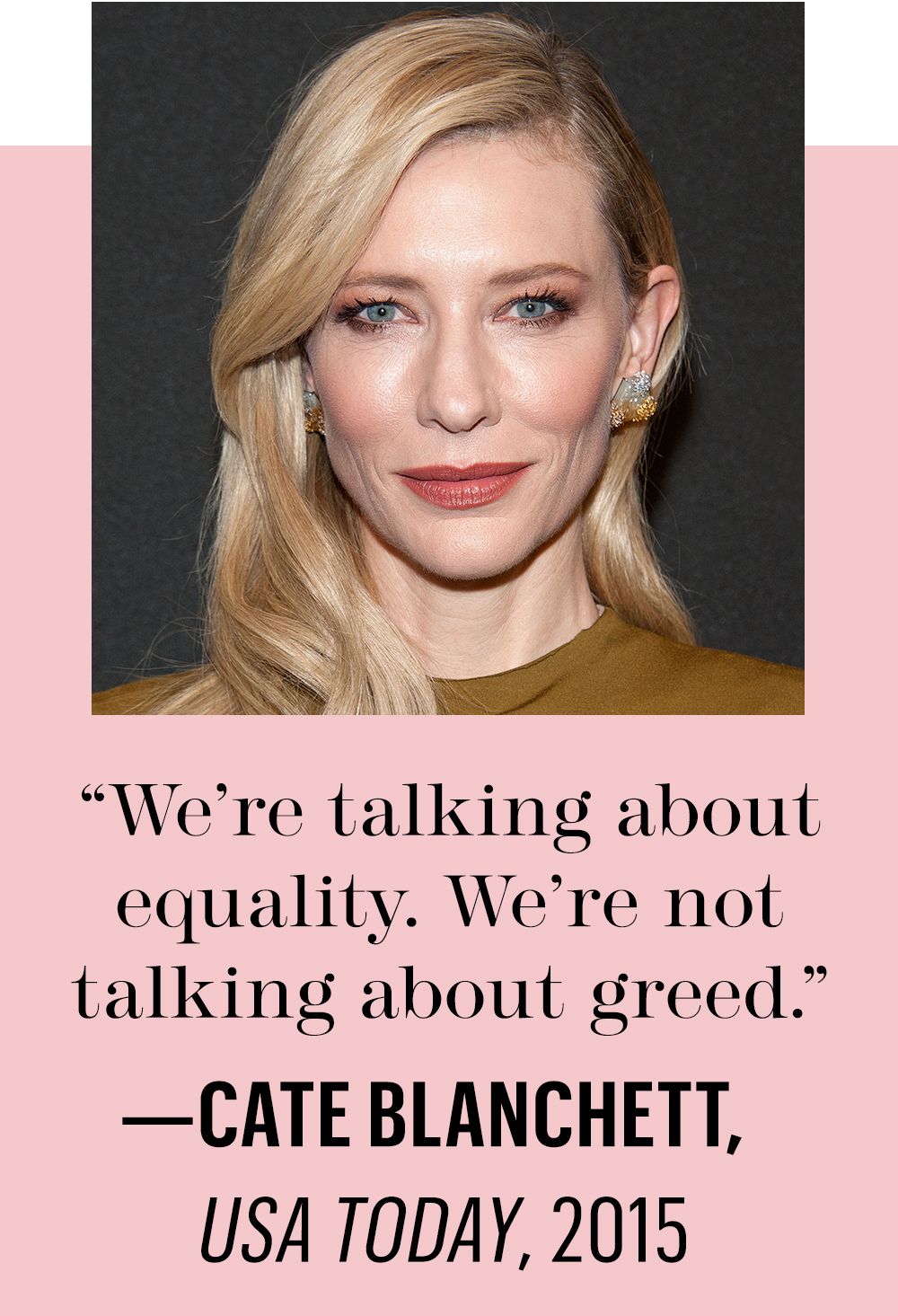
JB: Don't compromise quickly. Women are more likely to automatically take the first offer on the table because we're more likely to feel "lucky" to be employed at all. But remember, negotiation isn't necessarily one round: you can come back with other asks, even if those things aren't money. Maybe they can up your benefits or pay for you to take a class. Also, don't relate it to the personal. I can't afford my rent, I have student loans, I'm getting married or saving up for a house—all of these things are important and maybe your mom cares, but your employer doesn't give a shit. You have to make a case for why you deserve the money that is not because of your life circumstance. And finally, don't ever apologize for asking for money.
What You Can Do in the Workplace
Advice from Terra Terwilliger, director of relationships, at the Center for the Advancement of Women's Leadership at Stanford University
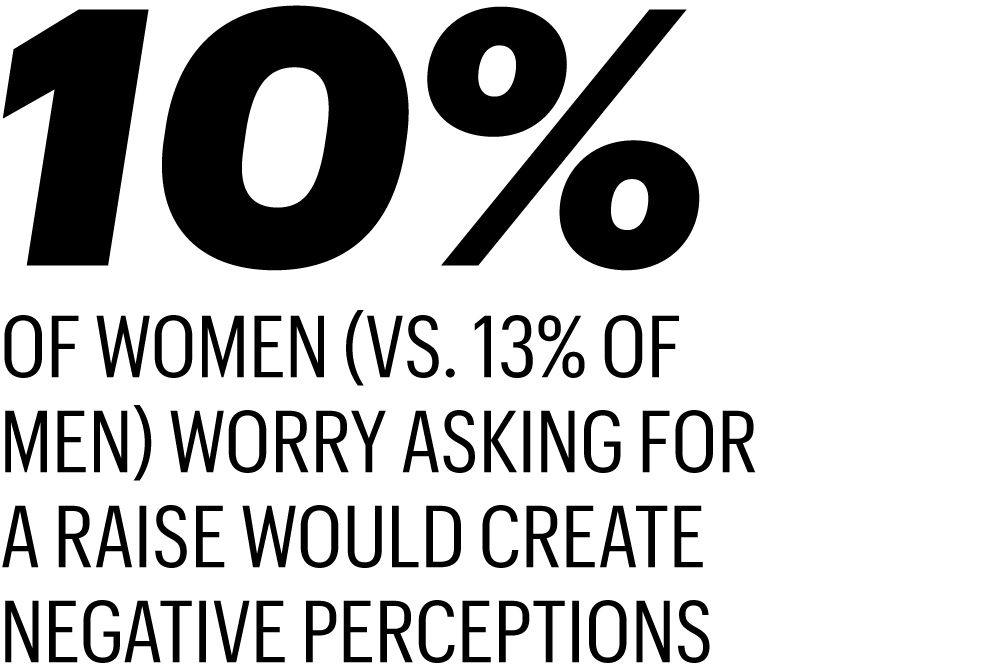
The road to fair pay begins before you are offered that coveted raise. "To get to equal pay, we need to ensure that women and men are treated equally throughout their careers," says Caroline Simard, senior director of research at the Center for the Advancement of Women's Leadership at Stanford University. "That means being evaluated fairly for promotions, having access to high-value assignments that can lead to advancement, and creating flexibility for parents without derailing their careers." While many companies are making big changes at the corporate level, managers and employees can and should do their part, too. Here are some ideas:
As a Manager
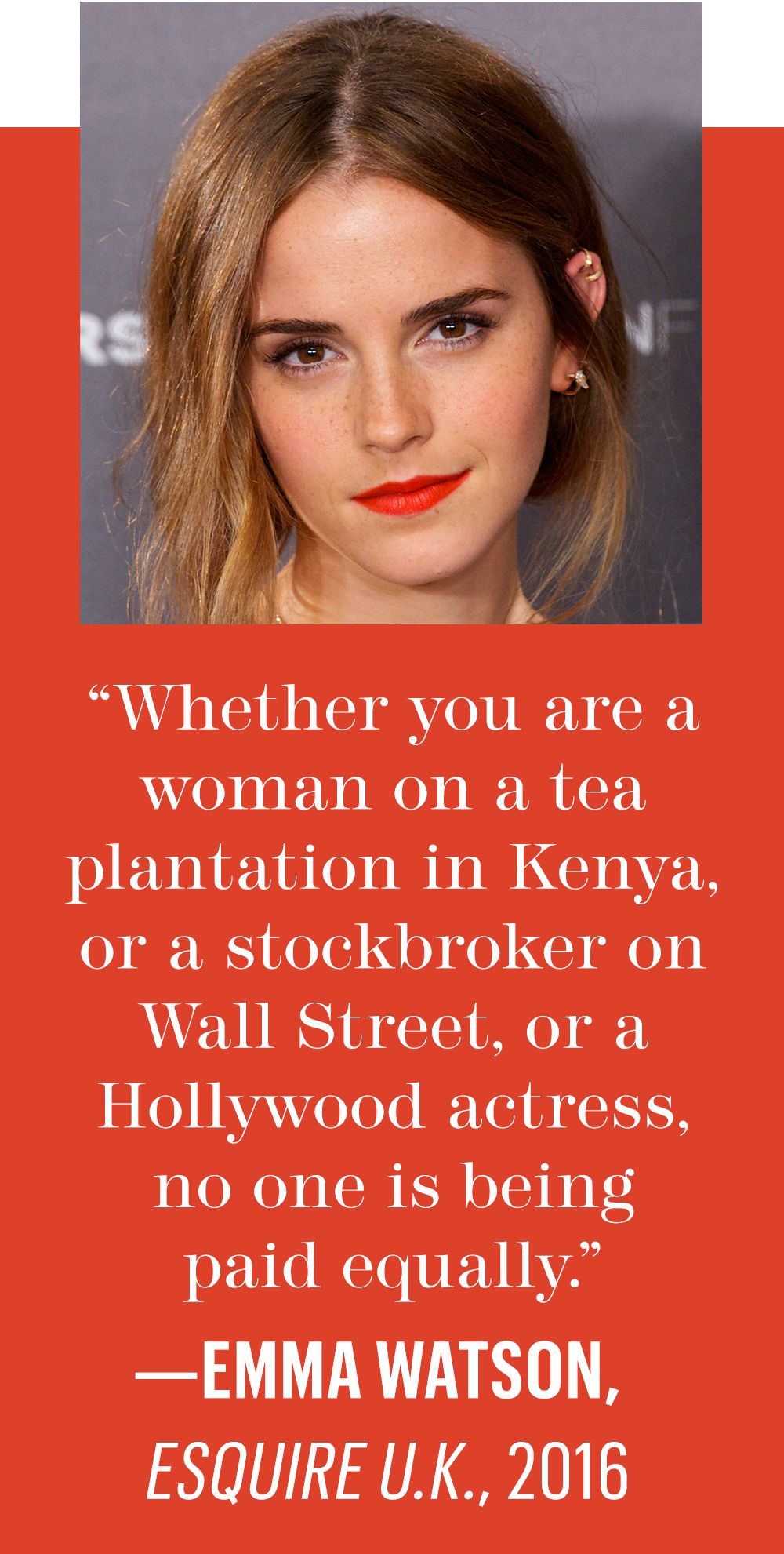
Level the bar used to evaluate employees
Simard's research shows women are often held to a higher standard of performance. This can lead to extra scrutiny and the need for women to "prove themselves," repeatedly, which can delay their career advancement. To avoid this, establish clear evaluation criteria and apply it objectively and consistently.
Block criticism of women's personalities and styles
Women are much more likely than men to be criticized for their communication style or personality. Simard recently evaluated 208 performance reviews and found women received 3.2 times as much feedback about having a negative or aggressive communication style than men. Researchers call that the "likeability-competence" trade-off—as women are perceived as more competent, they're also perceived as less likeable. Notice when an employee's style or personality is being discussed and redirect the conversation to focus on skills, accomplishments, and results instead.
Don't let your past salary determine your new one
When you interview for a position, employers may ask you for your past salary. Rather than answer the question, do some research on the expected pay range and prepare to articulate the specific skills and expertise that make you uniquely suited for the job—and the salary you want.
Raise your hand
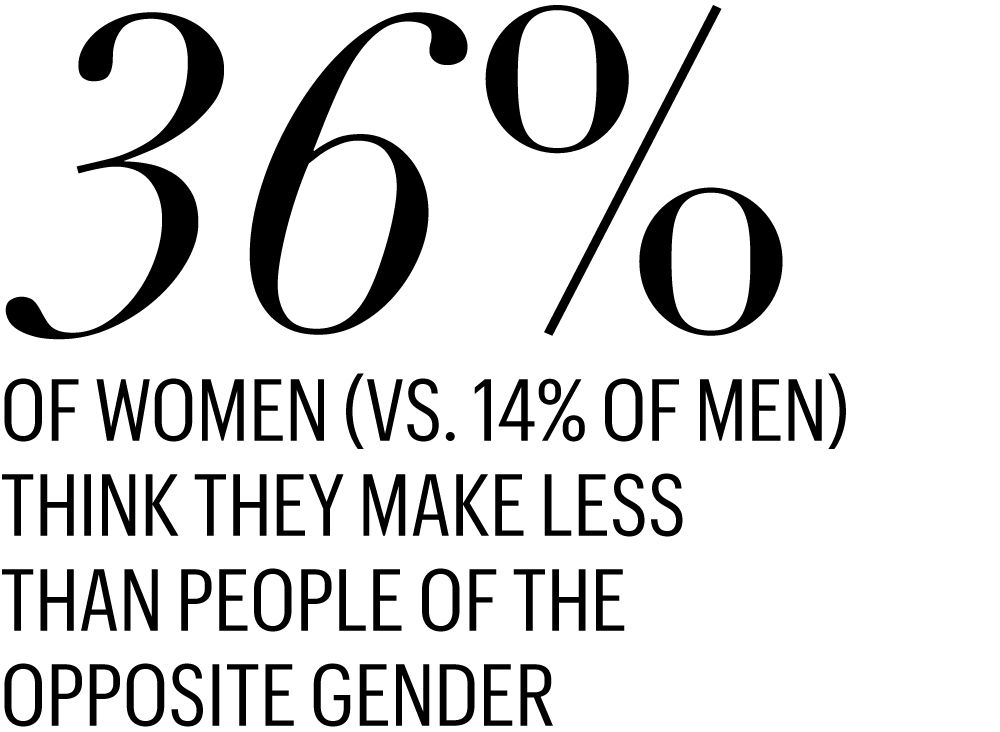
Stereotypes about women's capabilities can mean women don't get the experience that leads to the top jobs. "We see managers encourage women to pursue support roles because women are considered better at teamwork," says Simard. "Or, a manager might not suggest a women for a big opportunity that requires travel because she is a mother without even asking." Talk to your manager to make sure you are in line for opportunities. Also, be aware that career-changing assignments are often made informally and in a rush. Communicate early with your manager—and other influencers inside the company—about your desired career path, so you can be considered.
Network strategically
The top assignments, top jobs, and top pay are often the result of being visible to the right people. Consider networking as a key part of your job, and continually look for ways to demonstrate your value to influential people.
Ask for specific feedback
Simard's research suggests women receive much more vague feedback than men, which may mean your accomplishments are overlooked or you might not learn what to do to get to the next level. If you're told, "Great year!" in your review, ask how it was great. What business results did you drive? If you're told you, "need to be more confident," ask for actions or behaviors you should demonstrate to improve. Then follow up with your manager periodically to make sure you are making progress.
A version of this article appears in the September issue of Marie Claire, on newsstands now.
Kayla Webley Adler is the Deputy Editor of ELLE magazine. She edits cover stories, profiles, and narrative features on politics, culture, crime, and social trends. Previously, she worked as the Features Director at Marie Claire magazine and as a Staff Writer at TIME magazine.
